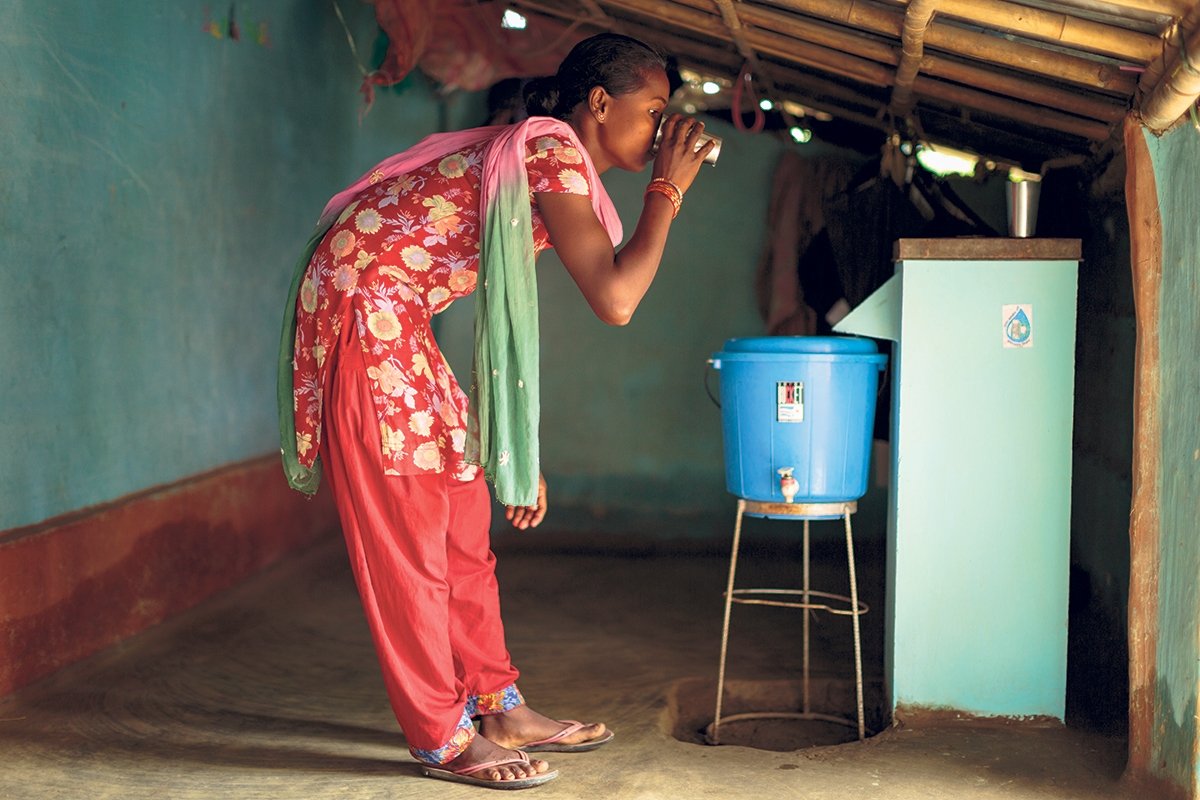Tackling the global water crisis
This article was originally published on the Globe and Mail's Philanthropy in Canada Report. It has been republished here with permission. View the original article here: Tackling the global water crisis - The Globe and Mail
Helping communities solve water, sanitation and hygiene challenges
The Centre for Affordable Water and Sanitation Technology (CAWST) has an ambitious goal – to reach 100 million people by 2030 with better water, sanitation and hygiene.
Marcos Lopez, a successful tech entrepreneur who joined the CAWST board in 2022, says he is still grappling with the gravity of the world’s water crisis. According to UNICEF, 2.2 billion people live without safely managed drinking water, sanitation and hygiene – known as WASH – and as a result, waterborne illnesses claim the lives of 1,000 children under the age of five every day.
Like CAWST, Mr. Lopez knows that humanity will be stronger when people have the opportunity to succeed because their basic water and sanitation needs have been met.
“In the last 12 months, I became aware that more people have access to a cell phone than a toilet. That’s so incongruent from the world that we see every day,” he says. “It also means all those people with cell phones can be reached digitally, and that enables you to distribute knowledge very effectively. Now we can take the advancement of telecommunication and cellular networks into areas where people might have reasonable cell connection but not clean water and use this technology to help them solve the problem,” he says.
With its sights set on reaching 100 million people by 2030 through partnerships, training and leveraging digital platforms, Mr. Lopez says CAWST favours the adage: teach a man to fish and you feed him for a lifetime.
To achieve this ambitious goal, the Calgary-based organization needs the support of Canadian philanthropists to catalyze action around the world in support of people like India’s Anil Sharma.
Mr. Sharma’s son was hospitalized with a waterborne illness in 2007, from drinking contaminated water in his school, an unfortunate reality for many kids around the world. From Mr. Sharma’s home in a hard-to-reach village in the Himalayas, he searched for a solution to help his family and others. He learned about the biosand filter, a technology invented in Canada, and travelled across India to apprentice with an organization that had been trained by CAWST.
Fast-forward 18 years later, Mr. Sharma and his team have built 5,000 filters, reaching 30,000 people with safe drinking water. And his son is a 24-year-old taking his PhD in atomic physics at Nicolaus Copernicus University in Poland. Safe water completely changed the trajectory of his life.
“What’s amazing is that this was possible because CAWST trained a local partner who went on to train Anil. As a result, Anil has improved the lives of tens of thousands with sustainable solutions. That’s the power of our model … of teaching people to take action for themselves and their communities. It’s one story and there are countless more,” says CAWST CEO Shauna Curry, adding that CAWST estimates that the impact from their training programs have helped more than 14 million people, just like Mr. Sharma, in 2023 alone.
What makes CAWST’s model unique is the leverage from training local organizations around the world, training them to train and making innovative use of digital technology. “CAWST hosts the world’s largest free and open access online database of water, sanitation and hygiene resources and training materials, but also provides consulting and in-person support,” she adds.
“We don’t have projects in communities; the communities have their own projects. People who are motivated to take action to solve their own water, sanitation and hygiene challenges, but might just need a bit of help, come to us,” says Ms. Curry. “We train and share expertise when invited – and the invitations keep coming. The demand and need for our services have never been greater.”
Founded in 2001, CAWST is a charity and nonprofit engineering firm tackling the global water crisis by making water knowledge common knowledge. CAWST trains and supports local people on simple, affordable technologies that they can implement themselves.
“When a person has safe water, their world changes,” says Ms. Curry. “It’s essential for a child to grow up, be healthy and go to school; and for parents to earn a living and be contributing members of their society. Water has the power to change everything. It is a fundamental human right and essential for our very existence,” she says.
Today, CAWST is poised to scale up even further. With a 60-person professional team behind her and partners across the globe discovering their capacity for making changes in their communities, Ms. Curry and CAWST are well positioned to hit their goal of reaching 100 million people by 2030.
“What we most need right now is to grow our revenue. CAWST has been extremely successful in attracting notable philanthropists like David O’Brien O.C., Marcos Lopez and many others who not only provide funding that makes CAWST possible but also provide critical guidance to the organization,” says Ms. Curry. “Because we are a relatively small charity, each of our committed philanthropists can see the tangible impact they make and how it is critical to our mission of making water knowledge common knowledge.”


